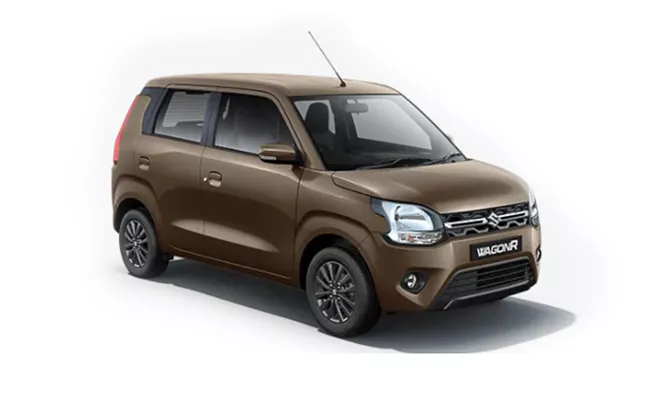When choosing the best fuel type for a car, each option—diesel, petrol, hybrid, CNG, and electric—has unique advantages that cater to different needs, driving styles, and environmental priorities.
Here’s a breakdown to help you understand which fuel type might be the best fit:

1. Petrol Cars
- Best for: Smooth daily commutes, city driving, and short trips.
- Pros: Known for responsive power delivery and smooth operation, petrol engines are ideal for lighter, compact cars that don’t require extensive torque. Additionally, maintenance costs for petrol engines are generally lower than for diesel.
- Cons: Fuel economy may be lower compared to diesel, and petrol engines produce higher carbon emissions.
2. Diesel Cars
- Best for: Long-distance travelers, highway drivers, and those needing higher torque for towing or heavy loads.
- Pros: Diesel engines typically offer better fuel efficiency and a longer lifespan, especially for high-mileage driving. They also produce more torque, making them ideal for larger vehicles and highway cruising.
- Cons: Diesel vehicles tend to have higher initial costs and maintenance expenses, and they may face more stringent emissions regulations due to higher nitrogen oxide emissions.
3. Hybrid Cars
- Best for: Eco-conscious drivers who prioritize fuel efficiency in mixed city and highway driving.
- Pros: Hybrid vehicles combine a petrol engine with an electric motor to maximize fuel efficiency, especially in stop-and-go traffic. They also reduce overall emissions and typically offer lower fuel costs.
- Cons: Initial purchase prices can be higher, and battery replacements (though infrequent) can be costly.
4. CNG (Compressed Natural Gas) Cars
- Best for: Cost-conscious drivers with access to CNG filling stations and those focused on reducing their carbon footprint.
- Pros: CNG is cheaper than petrol and diesel, and it burns cleaner, producing fewer emissions. It’s an affordable option for city driving and daily commutes.
- Cons: Limited refueling infrastructure, reduced trunk space due to CNG tank installation, and slightly lower performance compared to petrol or diesel.
5. Electric Vehicles (EVs)
- Best for: Environmentally-conscious drivers and urban commuters with access to charging facilities.
- Pros: Electric vehicles are emission-free at the tailpipe, significantly reduce running costs, and have fewer moving parts, which means lower maintenance. Government incentives often make them an attractive option.
- Cons: Range limitations, charging infrastructure, and initial costs are key considerations. However, advancements in technology continue to improve these areas.
Conclusion:
Choosing the best fuel type ultimately depends on your driving habits, budget, environmental considerations, and access to fueling or charging infrastructure. Diesel remains a good choice for high-mileage users, while petrol is versatile for city drivers. Hybrid and CNG options bridge fuel efficiency with lower emissions, and EVs lead the way for a sustainable future. Consider these factors to find the best fit for your needs.
"Which Car Brands Offer Diesel, Petrol, and Electric in India?"
| Brand | Petrol | Diesel | Electric |
|---|---|---|---|
| Maruti Suzuki | ✔ | ✘ | ✔ (eVX concept) |
| Hyundai | ✔ | ✔ | ✔ (Ioniq 5, Kona) |
| Tata Motors | ✔ | ✔ | ✔ (Nexon EV, Tiago EV) |
| Mahindra | ✔ | ✔ | ✔ (XUV400 EV) |
| Honda | ✔ | ✘ | ✘ |
| Toyota | ✔ | ✔ | ✔ (bZ4X globally planned) |
| Kia | ✔ | ✔ | ✔ (EV6) |
| MG Motors | ✔ | ✘ | ✔ (ZS EV) |
| Skoda | ✔ | ✘ | ✘ |
| Volkswagen | ✔ | ✘ | ✘ |
| Audi | ✔ | ✘ | ✔ (e-Tron) |
| Land Rover | #10004;✘ | ✔ (ZS EV) | |
| Jaguar | ✔ | ✘ | ✔ (I-Pace) |
| Porsche | ✔ | ✘ | ✔ (Taycan) |
| Lexus | ✔ | ✘ | ✔ (UX 300e) |
| Mercedes-Benz | ✔ | ✔ | ✔ (EQB, EQS) |
| BMW | ✔ | ✔ | ✔ (iX, i4) |
| Volvo | ✔ | ✘ | ✔ (XC40 Recharge) |
| Nissan | ✔ | ✘ | ✔ (Leaf planned) |
| Renault | ✔ | ✘ | ✘ |
| Jeep | ✔ | ✔ | ✘ |
![cropped-Picsart_24-09-27_22-33-39-629-1.jpg {"remix_data":[],"remix_entry_point":"challenges","source_tags":[],"origin":"unknown","total_draw_time":0,"total_draw_actions":0,"layers_used":0,"brushes_used":0,"photos_added":0,"total_editor_actions":{},"tools_used":{},"is_sticker":false,"edited_since_last_sticker_save":false,"containsFTESticker":false}](https://ashirwadcarbazar.com/wp-content/uploads/2024/10/cropped-Picsart_24-09-27_22-33-39-629-1.jpg)



Add comment